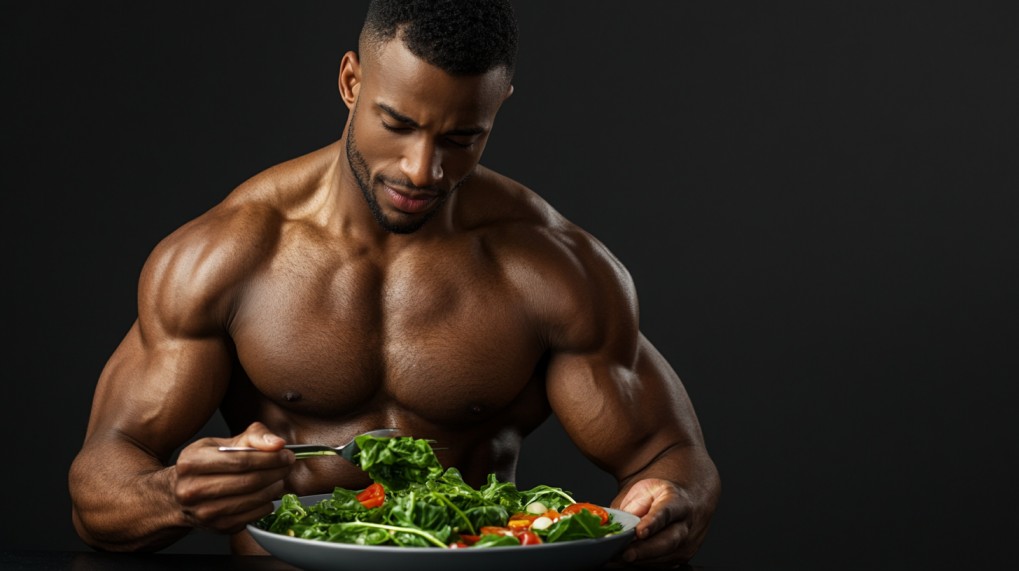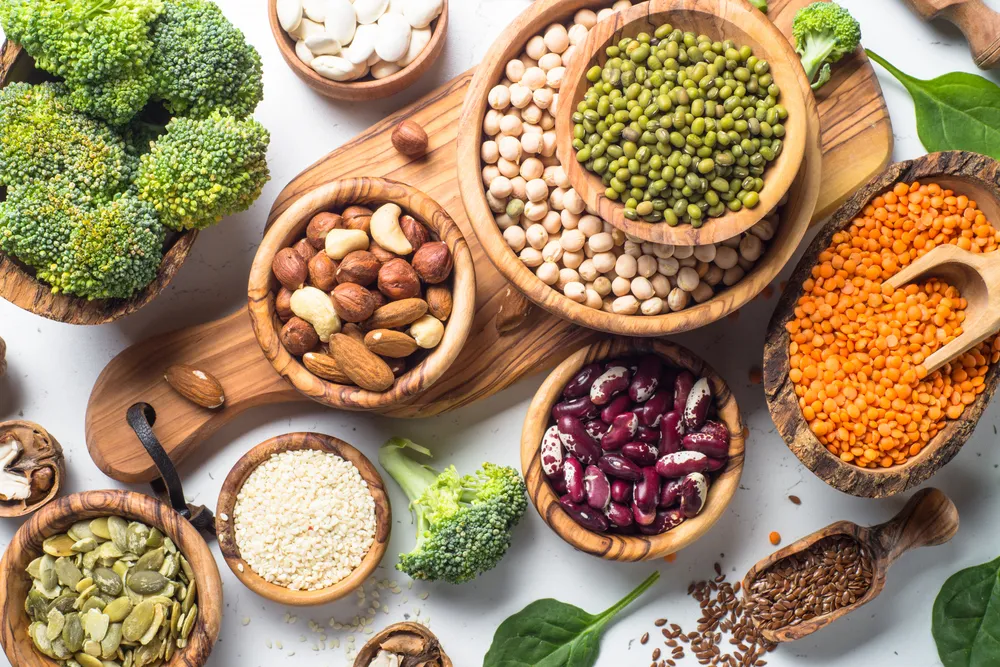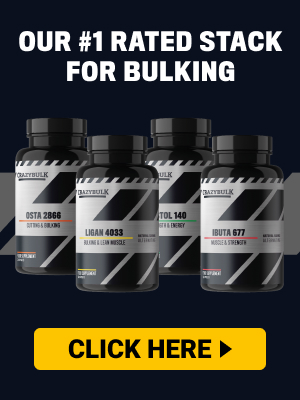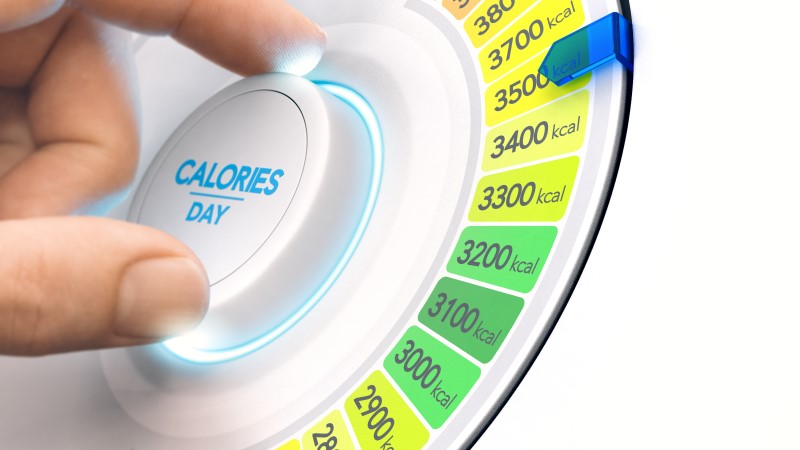The Fundamentals of Muscle-Building Nutrition
If training is the spark that ignites muscle growth, nutrition is the fuel that keeps the fire burning. You can follow the most effective workout split in the world, but without the right nutrition strategy, your gains will stall long before your potential does.
This guide lays out the core fundamentals of muscle-building nutrition — how much to eat, what to eat, and when to eat — so you can turn effort in the gym into actual muscle growth.
The Principle of Energy Balance
At its simplest, muscle growth happens when you consume more calories than you burn — a caloric surplus. That surplus provides the energy your body needs to synthesize new muscle tissue, repair damage, and recover between sessions.
Caloric Surplus Formula:
Maintenance Calories (TDEE) + 250–500 calories = Optimal Surplus
Too small a surplus, and you’ll limit growth. Too large, and you’ll gain unnecessary fat.
Most lifters do best with a 10–15% surplus above maintenance, which supports steady muscle gain with minimal fat accumulation.
Pro Tip:
Recalculate your calorie needs every 4–6 weeks as body weight and activity change. Tools like a TDEE Calculator make this easy and accurate.
Protein: The Foundation of Growth
Protein is the raw material of muscle tissue. When you train, you create microtears in your muscle fibers. Protein provides the amino acids your body uses to repair and rebuild those fibers — making them thicker and stronger.
Recommended Intake:
- 1.6–2.2 g per kg of body weight (0.7–1.0 g per lb)
- Spread evenly across 3–5 meals per day
High-Quality Protein Sources:
- Eggs and egg whites
- Chicken, turkey, lean beef
- Fish (especially salmon and tuna)
- Whey or casein protein powder
- Greek yogurt and cottage cheese
- Tofu and lentils (for plant-based diets)
Why It Matters:
A steady stream of protein throughout the day maximizes muscle protein synthesis (MPS) — the biological process that builds new muscle tissue. Missing protein targets consistently is the fastest way to plateau your progress.
Carbohydrates: Fuel for Performance and Recovery
Carbs are your body’s primary training fuel. They replenish muscle glycogen, which drives intense performance in the gym and supports recovery afterward.
Recommended Intake:
- 4–7 g per kg of body weight per day, depending on training volume
- Higher intake for heavy lifters, athletes, or high-frequency programs (like PHAT or PPL)
Smart Carb Sources:
- Oats, rice, potatoes, quinoa
- Fruits and starchy vegetables
- Whole-grain bread and pasta
- Honey and dextrose (post-workout, in moderation)
Timing Tip:
Consume 30–60 grams of carbs before and after workouts to improve energy and glycogen replenishment.
This is especially key for lifters training more than 4 days per week.
Fats: Hormonal Support and Joint Health
Fats often get ignored by bodybuilders, but they’re essential for hormone regulation, including testosterone and growth hormone — both crucial for muscle building and recovery.
Recommended Intake:
- 20–30% of total calories
- Focus on monounsaturated and polyunsaturated fats
Healthy Fat Sources:
- Avocados, olive oil, nuts, seeds
- Fatty fish (salmon, mackerel)
- Whole eggs
- Grass-fed beef and dairy
Avoid extreme low-fat diets — they can suppress testosterone, reduce joint lubrication, and impair recovery.
Macronutrient Balance in Practice
Once you’ve determined your calorie target, distribute macros roughly as follows:
| Goal | Protein | Carbs | Fats |
| Muscle Gain | 25–30% | 50–55% | 20–25% |
| Maintenance | 30% | 45–50% | 20–25% |
| Fat Loss | 35–40% | 35–40% | 20–25% |
Remember: these are starting points. Individual adjustments should be based on body response, performance, and recovery.
Meal Timing and Frequency
The “anabolic window” isn’t just post-workout anymore — it’s the entire day. Keeping protein and energy availability steady ensures your body stays in a muscle-building environment.
Optimal Frequency:
- 3–5 balanced meals per day
- Each meal containing 20–40g protein, carbs for fuel, and healthy fats
Example Daily Meal Structure:
- Meal 1 (Breakfast): Oatmeal + egg whites + berries
- Meal 2 (Pre-Workout): Rice + chicken + veggies
- Meal 3 (Post-Workout): Whey shake + banana
- Meal 4 (Dinner): Salmon + quinoa + olive oil
- Meal 5 (Optional Snack): Greek yogurt + almonds
This keeps your muscles constantly fed with amino acids and energy for repair and growth.
Micronutrients: The Unsung Heroes
Muscle growth isn’t just about macros — micronutrients drive hundreds of processes that influence performance and recovery.
Key Vitamins & Minerals for Lifters:
- Magnesium: muscle contraction, sleep quality
- Zinc: testosterone and immune support
- Vitamin D: hormone regulation, strength
- B-Vitamins: energy metabolism
- Electrolytes: hydration and nerve function
A well-rounded diet with plenty of fruits, vegetables, and whole foods ensures you’re not limited by deficiencies.
Hydration and Electrolytes
Muscle is nearly 75% water — dehydration kills performance and recovery.
Even a 2% drop in hydration can reduce strength output significantly.
Hydration Strategy:
- 3–4 liters of water per day minimum
- Add electrolytes (sodium, potassium, magnesium) if you sweat heavily
- Include intra-workout hydration (water + electrolytes or EAAs)
Supplements: Enhancing, Not Replacing
Supplements are meant to supplement — not substitute — a solid diet.
Used wisely, they can improve recovery, performance, and convenience.
Top Evidence-Based Muscle-Building Supplements:
- Creatine Monohydrate: Increases strength, muscle volume, and recovery
- Whey Protein: Convenient way to hit protein targets
- Caffeine: Improves focus and training intensity
- Beta-Alanine: Delays muscular fatigue
- Fish Oil: Reduces inflammation and supports joint health
- Vitamin D3 + Magnesium: Supports strength and recovery
Avoid relying solely on powders or “mass gainers.” Whole foods should always form your nutritional base.
Adjusting as You Progress
Nutrition isn’t static — as your physique changes, your calorie needs and macro ratios will too.
Use the scale, mirror, and gym performance as your feedback loop:
- Gaining too slowly: Add +150–200 kcal/day
- Gaining too much fat: Reduce surplus slightly
- Performance plateauing: Reassess carbs and sleep
Tracking your intake with an app (like MyFitnessPal) can help you stay consistent and accountable.
Putting It All Together
To build muscle effectively, think of your nutrition as a system:
- Calorie Surplus: Eat enough to grow, not enough to spill over
- Protein Priority: Hit daily targets consistently
- Carb Timing: Fuel hard sessions and recovery
- Fats for Hormones: Keep intake healthy and stable
- Hydration: Stay fueled, flexible, and focused
- Consistency: Your body adapts to what you do repeatedly
✅ Key Takeaways
- You can’t out-train poor nutrition.
- Protein and total calorie intake are non-negotiable.
- Carbs and fats fine-tune performance and hormones.
- Hydration and micronutrients play bigger roles than most realize.
- Consistency beats perfection — always.
When you lock in these fundamentals, your body becomes an anabolic machine — primed to turn every rep into real muscle.
🔗 Next Steps
- Read next: How to Calculate Your Calories for Muscle Growth (TDEE Guide)
- Dive deeper: Protein for Muscle Growth: How Much Do You Really Need?
- Explore: Supplements & Performance Aids






